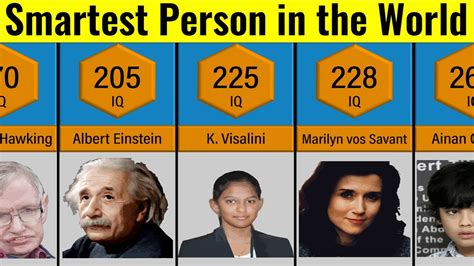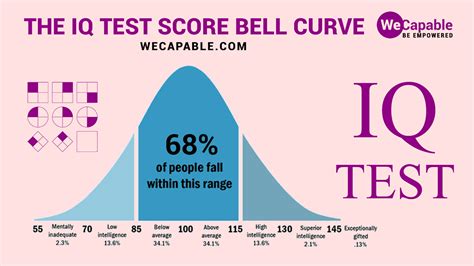
Do you consider yourself a wordsmith? A vocabulary quiz circulating online suggests only those with high intelligence possess familiarity with 34 specific words, challenging readers to assess their linguistic prowess and, by implication, their IQ.
A vocabulary test featuring 34 relatively uncommon words is making waves online, prompting individuals to question the breadth of their lexicon and speculate on its correlation with intelligence. The list, compiled from various sources including vocabulary tests and expert opinions, aims to differentiate those with a robust understanding of language from those with a more limited vocabulary. While the validity of using vocabulary as a sole measure of intelligence remains debatable, the quiz has sparked considerable interest and discussion across social media platforms.
The core of the challenge lies in recognizing and understanding the meaning of the listed words. Some examples include: “ephemeral,” “ubiquitous,” “capricious,” “esoteric,” “lachrymose,” “pedantic,” “obsequious,” “querulous,” “reticent,” “tenuous,” “bombastic,” “pulchritude,” “sesquipedalian,” “defenestrate,” “perfidious,” “mellifluous,” “ignominious,” “insidious,” “propinquity,” “exacerbate,” “ostensible,” “recalcitrant,” “circumlocution,” “superfluous,” “enervate,” “surreptitious,” “belligerent,” “fastidious,” “munificent,” “penchant,” “ameliorate,” “vacillate,” “plethora,” and “cognizant.” The test implies that familiarity with a significant portion of these words suggests a higher-than-average intellectual capacity.
However, experts caution against drawing definitive conclusions about intelligence based solely on vocabulary. While a strong vocabulary often correlates with higher education and exposure to diverse ideas, it doesn’t necessarily encompass the full spectrum of cognitive abilities. Factors such as reasoning skills, problem-solving abilities, and emotional intelligence also play crucial roles in determining overall intelligence.
The quiz’s popularity reflects a broader societal fascination with self-assessment and the desire to benchmark oneself against perceived intellectual standards. Online quizzes and tests, ranging from personality assessments to cognitive challenges, provide a readily accessible means of self-evaluation and social comparison. The allure of such tests lies in their ability to offer a sense of validation or identify areas for self-improvement.
The list of 34 words, while not exhaustive, serves as a starting point for individuals interested in expanding their vocabulary and enhancing their linguistic skills. Resources such as dictionaries, thesauruses, and online vocabulary builders can be valuable tools for language acquisition. Furthermore, engaging with literature, current affairs, and diverse forms of media can contribute to a broader understanding of language and its nuances.
Dr. Erica Ramirez, a cognitive psychologist, notes, “Vocabulary is undeniably linked to cognitive development. A larger vocabulary allows for more nuanced understanding and expression. However, it’s just one piece of the puzzle. Critical thinking, problem-solving, and emotional intelligence are equally important.”
The virality of the vocabulary test highlights the enduring human interest in intelligence and the ways in which it is measured and perceived. While the test may not provide a definitive measure of IQ, it serves as a reminder of the importance of language and its role in shaping our understanding of the world. Whether taken as a lighthearted challenge or a serious self-assessment tool, the quiz encourages individuals to engage with language and explore the richness of the English vocabulary.
Furthermore, the article delves into the accessibility of these words and where one might encounter them. While some words might appear more frequently in academic texts or literary works, others might be found in legal documents or specialized professional contexts. The article emphasizes that constant learning and engagement with diverse sources of information are essential for continuous vocabulary growth.
The concept of “intelligence” itself is a complex and multifaceted one. While IQ tests have been used for decades to assess cognitive abilities, they are not without their limitations. Critics argue that IQ tests often focus on specific types of intelligence, such as logical and mathematical reasoning, while neglecting other important aspects, such as creativity, social skills, and practical intelligence.
The discussion around the 34-word vocabulary test also raises questions about cultural bias in language and intelligence testing. Some words may be more familiar to individuals from certain educational backgrounds or cultural groups, potentially skewing the results. Therefore, it is important to interpret the results of such tests with caution and avoid making sweeping generalizations about intelligence based solely on vocabulary knowledge.
The article also explores the role of technology in language learning and vocabulary acquisition. Online resources such as dictionaries, thesauruses, and language learning apps have made it easier than ever for individuals to expand their vocabulary and improve their linguistic skills. Additionally, social media platforms and online forums provide opportunities for individuals to engage in discussions about language and share their knowledge with others.
The underlying message of the article is that while vocabulary is an important aspect of intelligence, it is not the only factor. A well-rounded individual possesses a diverse range of cognitive abilities, including critical thinking, problem-solving, creativity, and emotional intelligence. Furthermore, continuous learning and engagement with the world around us are essential for personal and intellectual growth.
The article also emphasizes that the pursuit of knowledge should be driven by a genuine desire to learn and grow, rather than by a need to prove one’s intelligence to others. Vocabulary acquisition should be seen as a lifelong journey, rather than a competition. By embracing a growth mindset and focusing on continuous improvement, individuals can expand their horizons and unlock their full potential.
Moreover, the article includes insights from linguists and educators on effective strategies for vocabulary building. They recommend reading widely, paying attention to unfamiliar words, looking up their definitions, and using them in writing and conversation. They also suggest using mnemonic devices, word association techniques, and other memory aids to help retain new vocabulary.
The resurgence of interest in vocabulary testing and online quizzes can be attributed to several factors, including the increasing accessibility of technology, the desire for self-improvement, and the pervasive culture of social comparison. While these tests may not provide a definitive measure of intelligence, they can serve as a fun and engaging way to challenge oneself and expand one’s knowledge.
The article also highlights the importance of context in understanding vocabulary. Words can have different meanings depending on the context in which they are used. Therefore, it is essential to pay attention to the surrounding words and phrases in order to accurately interpret the meaning of a word.
In addition, the article discusses the role of etymology in vocabulary acquisition. Understanding the origins and historical development of words can provide valuable insights into their meanings and relationships to other words. For example, knowing that the word “benevolent” comes from the Latin words “bene” (well) and “volens” (wishing) can help one remember its meaning as “well-wishing” or “kind.”
The article concludes by reiterating that vocabulary is just one aspect of intelligence and that a well-rounded individual possesses a diverse range of cognitive abilities. It encourages readers to embrace a growth mindset, focus on continuous learning, and pursue knowledge for its own sake. While the 34-word vocabulary test may not provide a definitive measure of IQ, it can serve as a fun and engaging way to challenge oneself and expand one’s knowledge.
Frequently Asked Questions (FAQ)
1. Does knowing all 34 words on the list guarantee a high IQ?
No. While a strong vocabulary often correlates with higher education and exposure to diverse ideas, it is not the sole determinant of intelligence. As Dr. Erica Ramirez, a cognitive psychologist, states, “Vocabulary is undeniably linked to cognitive development… However, it’s just one piece of the puzzle. Critical thinking, problem-solving, and emotional intelligence are equally important.” A broad vocabulary reflects learning and cognitive development but doesn’t encompass all aspects of intelligence measured by IQ tests or other comprehensive assessments.
2. Where does this list of 34 words come from, and is it scientifically validated?
The list is a compilation from various sources, including vocabulary tests and expert opinions. The article does not state it’s from one specific standardized test. It is intended to be representative of words that are less commonly known but are part of a sophisticated vocabulary. However, the validity of using this specific list as a definitive measure of intelligence is questionable. It serves more as an informal gauge of vocabulary knowledge rather than a scientifically validated IQ assessment.
3. Are there any cultural biases in the word list?
Yes, there is a potential for cultural bias. As the article mentions, some words may be more familiar to individuals from certain educational backgrounds or cultural groups. This can skew the results and make it difficult to compare scores across different populations. The list reflects a bias toward vocabulary commonly used in academic and professional settings, which may not be equally accessible to everyone.
4. How can I improve my vocabulary if I didn’t know many words on the list?
The article suggests several methods. “Resources such as dictionaries, thesauruses, and online vocabulary builders can be valuable tools for language acquisition. Furthermore, engaging with literature, current affairs, and diverse forms of media can contribute to a broader understanding of language and its nuances.” Experts recommend reading widely, paying attention to unfamiliar words, looking up their definitions, using them in writing and conversation, and employing mnemonic devices.
5. What is the main takeaway from this vocabulary test trend?
The main takeaway is that while vocabulary is an important component of cognitive ability, it is not the only factor that determines intelligence. The article emphasizes the importance of continuous learning, critical thinking, and emotional intelligence in addition to vocabulary knowledge. “The underlying message of the article is that while vocabulary is an important aspect of intelligence, it is not the only factor. A well-rounded individual possesses a diverse range of cognitive abilities, including critical thinking, problem-solving, creativity, and emotional intelligence.” The test serves more as a prompt to engage with language and expand one’s knowledge rather than a definitive measure of intellectual capacity.
Expanded Article with Additional Context and Information:
The recent surge in online vocabulary quizzes, epitomized by the “34 Words Only Smartest People Know” challenge, reflects a longstanding fascination with intelligence and its measurement. While the allure of self-assessment is undeniable, it’s crucial to approach such tests with a critical eye, recognizing their limitations and potential for misinterpretation. The underlying premise – that vocabulary size directly equates to intelligence – is an oversimplification of a complex cognitive landscape. Intelligence encompasses a multifaceted array of abilities, including logical reasoning, spatial awareness, emotional intelligence, creative thinking, and problem-solving skills. To reduce it to a single linguistic metric is not only misleading but potentially detrimental, fostering a narrow and potentially exclusionary view of intellect.
The origin of intelligence testing can be traced back to the early 20th century, with figures like Alfred Binet pioneering methods to identify children who might require special educational assistance. Binet’s initial tests focused on a range of cognitive skills, including memory, attention, and reasoning, not solely on vocabulary. However, as intelligence testing evolved, vocabulary became a prominent component, largely due to its correlation with educational attainment and general knowledge. Standardized IQ tests, such as the Wechsler Adult Intelligence Scale (WAIS) and the Stanford-Binet Intelligence Scales, include vocabulary subtests that assess an individual’s ability to define and understand words.
The link between vocabulary and intelligence is undeniable. A robust vocabulary facilitates comprehension, enhances communication skills, and provides access to a wider range of information. Individuals with extensive vocabularies are often better equipped to articulate their thoughts, understand complex concepts, and engage in meaningful discussions. Furthermore, vocabulary knowledge is strongly correlated with reading comprehension, which is a fundamental skill for academic and professional success.
However, it’s important to recognize that vocabulary is largely a product of learning and experience. Individuals from privileged backgrounds, with access to quality education and enriching cultural experiences, are likely to develop larger vocabularies than those from disadvantaged backgrounds. This raises concerns about the potential for socioeconomic bias in vocabulary-based intelligence assessments. A person’s upbringing, exposure to literature, access to educational resources, and even their cultural background heavily influence their vocabulary. To equate that learned knowledge directly with innate intelligence ignores the systemic inequalities that shape individual development.
Moreover, the specific words included in the “34 Words” list, and similar vocabulary quizzes, often reflect a particular cultural and educational milieu. These words tend to be drawn from academic or literary sources, which may not be equally familiar to individuals from different cultural backgrounds or professional fields. For example, a highly skilled engineer might possess a deep understanding of technical jargon specific to their field, but they might not be as familiar with literary terms such as “lachrymose” or “pedantic.” This doesn’t necessarily indicate a lower level of intelligence, but rather a different area of expertise.
The popularity of online vocabulary quizzes can be attributed to several factors. First, they offer a quick and easy way to assess one’s knowledge and compare oneself to others. Second, they tap into our inherent desire for self-improvement. Many individuals are motivated to expand their vocabulary and enhance their communication skills, and these quizzes provide a fun and engaging way to do so. Third, they cater to our competitive nature. The promise of discovering that one possesses a “high IQ” is an enticing prospect for many people.
However, it’s crucial to approach these quizzes with a healthy dose of skepticism. The results should not be taken as definitive measures of intelligence, but rather as indicators of vocabulary knowledge. Furthermore, it’s important to recognize that vocabulary acquisition is a lifelong journey, not a destination. Continuous learning and engagement with language are essential for expanding one’s vocabulary and enhancing one’s cognitive abilities.
To effectively improve your vocabulary, consider adopting the following strategies:
- Read widely and voraciously: Expose yourself to a variety of texts, including books, magazines, newspapers, and online articles. Pay attention to unfamiliar words and make a note of them.
- Look up unfamiliar words in a dictionary: Don’t just skim over unfamiliar words; take the time to look them up in a dictionary and understand their meanings and origins.
- Use a thesaurus to find synonyms: A thesaurus can help you expand your vocabulary by introducing you to new words that have similar meanings to words you already know.
- Use flashcards or vocabulary apps: Flashcards and vocabulary apps can be helpful tools for memorizing new words and their definitions.
- Use new words in your writing and conversation: The best way to solidify your understanding of a new word is to use it in your writing and conversation.
- Engage in conversations with knowledgeable people: Talking to people who have a wide vocabulary can expose you to new words and help you improve your own communication skills.
- Take a vocabulary course or workshop: Consider taking a vocabulary course or workshop to learn new words and improve your vocabulary skills.
- Explore etymology: Learning about the origins of words can often help you remember their meanings. Websites and books dedicated to etymology can be fascinating resources.
Beyond vocabulary, a holistic approach to cognitive development should encompass the following:
- Critical Thinking: Cultivate the ability to analyze information objectively, identify biases, and form well-reasoned conclusions.
- Problem-Solving: Develop skills in identifying problems, generating solutions, and evaluating their effectiveness.
- Creativity: Encourage imaginative thinking, exploration of new ideas, and innovative approaches to challenges.
- Emotional Intelligence: Enhance self-awareness, empathy, and the ability to manage emotions effectively.
- Continuous Learning: Embrace a growth mindset, remain curious, and actively seek new knowledge and experiences.
The “34 Words Only Smartest People Know” challenge serves as a reminder of the importance of language and its role in shaping our understanding of the world. However, it is essential to approach such tests with a critical eye and recognize that vocabulary is just one piece of the puzzle. A well-rounded individual possesses a diverse range of cognitive abilities, and continuous learning and engagement with the world around us are essential for personal and intellectual growth. While expanding your vocabulary is a worthwhile endeavor, it should not be seen as the sole measure of intelligence. Embrace a holistic approach to cognitive development and focus on cultivating a diverse range of skills and abilities.
Ultimately, the pursuit of knowledge should be driven by a genuine desire to learn and grow, rather than by a need to prove one’s intelligence to others. By embracing a growth mindset and focusing on continuous improvement, individuals can expand their horizons and unlock their full potential. The true measure of intelligence lies not in the number of words one knows, but in the ability to think critically, solve problems creatively, and engage with the world in a meaningful way.
The debate surrounding intelligence and its measurement is ongoing, with experts continuing to explore the complexities of cognitive abilities and the factors that influence them. While IQ tests have been used for decades to assess cognitive abilities, they are not without their limitations. Critics argue that IQ tests often focus on specific types of intelligence, such as logical and mathematical reasoning, while neglecting other important aspects, such as creativity, social skills, and practical intelligence. The emergence of alternative theories of intelligence, such as Howard Gardner’s theory of multiple intelligences, has challenged the traditional view of intelligence as a single, unified construct. Gardner argues that there are at least eight different types of intelligence, including linguistic, logical-mathematical, spatial, musical, bodily-kinesthetic, interpersonal, intrapersonal, and naturalist intelligence. This perspective suggests that individuals may excel in different areas, and that intelligence should be assessed in a more comprehensive and nuanced manner.
The discussion around the 34-word vocabulary test also raises questions about the impact of technology on language and cognitive development. In an increasingly digital world, individuals are exposed to a vast amount of information through various online platforms. While technology can provide access to valuable learning resources, it can also lead to information overload and a decline in attention spans. Furthermore, the use of abbreviations, slang, and informal language in online communication can potentially erode vocabulary and grammar skills. It is important to be mindful of the potential impact of technology on language and cognitive development and to cultivate habits that promote critical thinking, reading comprehension, and vocabulary acquisition.
The article underscores that true intelligence is not about memorizing a list of obscure words, but about the ability to think critically, solve problems creatively, and adapt to new situations. It’s about continuous learning, personal growth, and making meaningful contributions to society. The “34 Words” test may be a fun diversion, but it should not define your self-worth or limit your potential.









